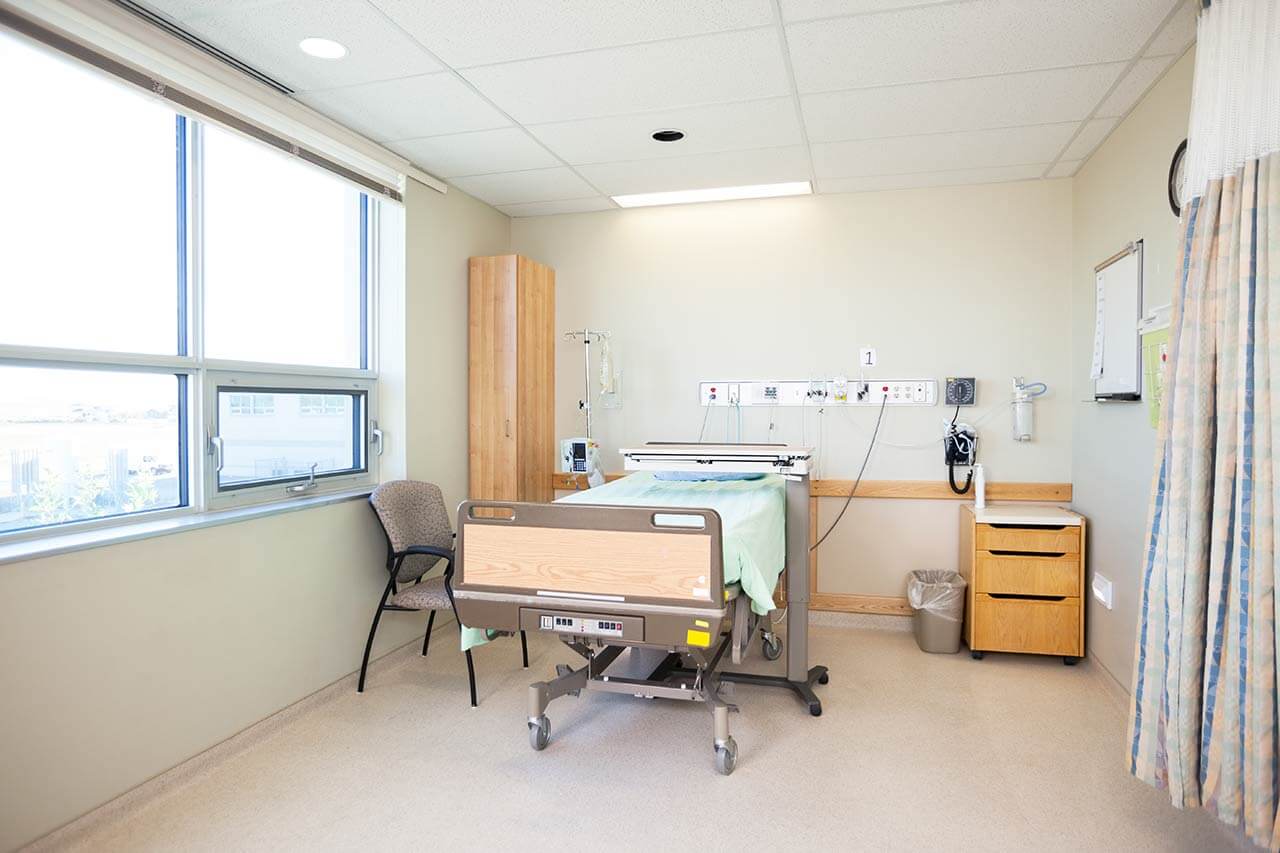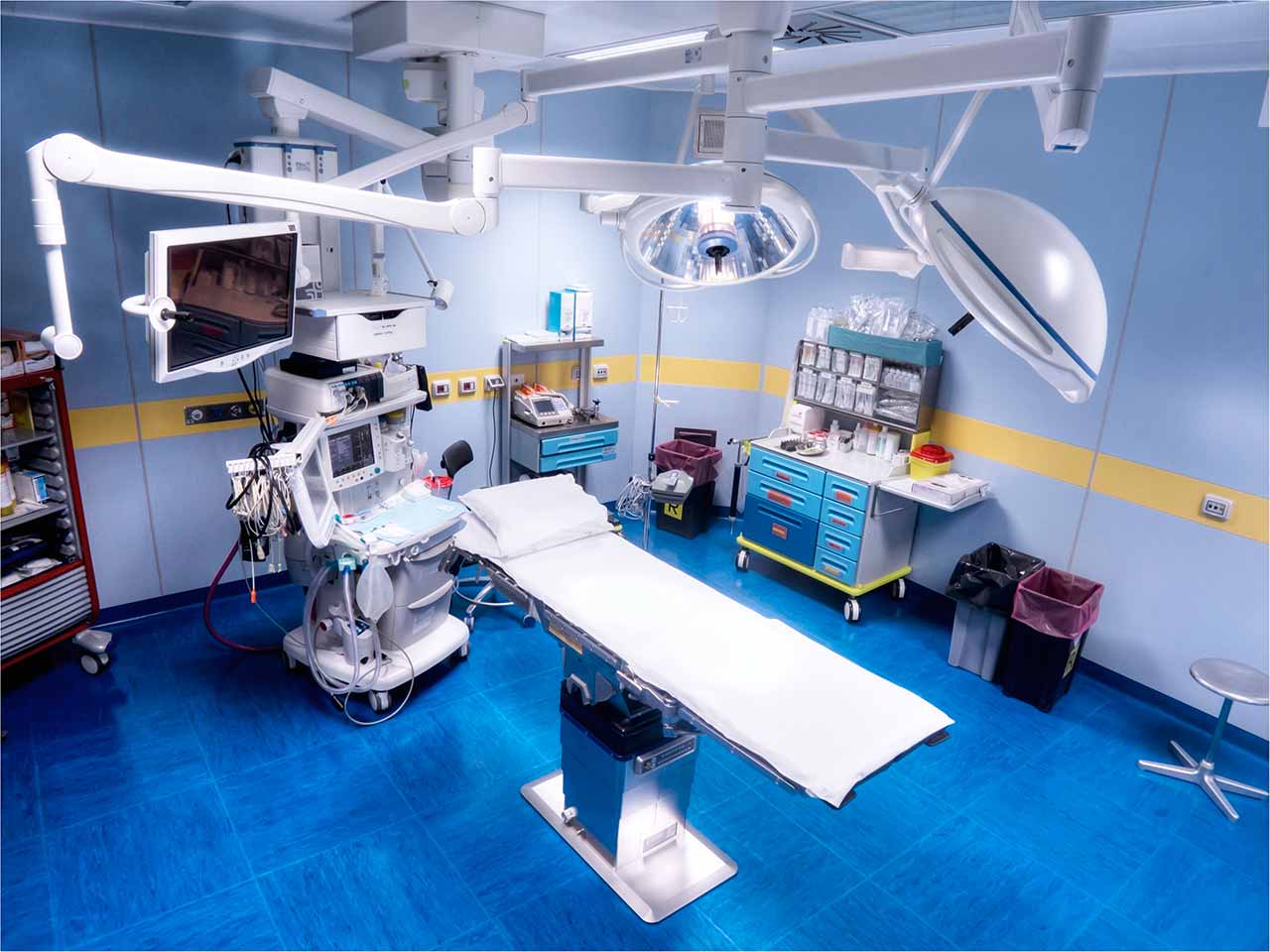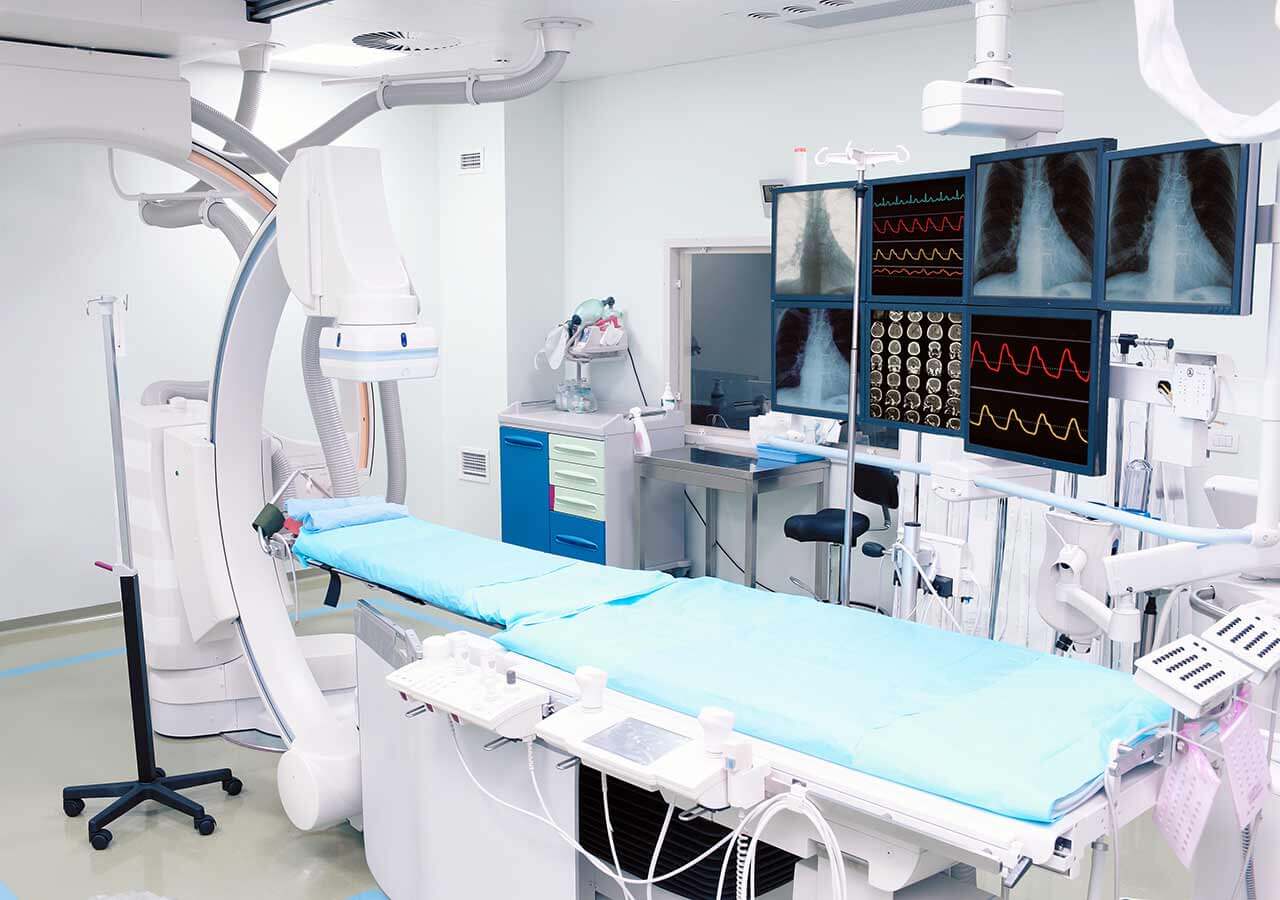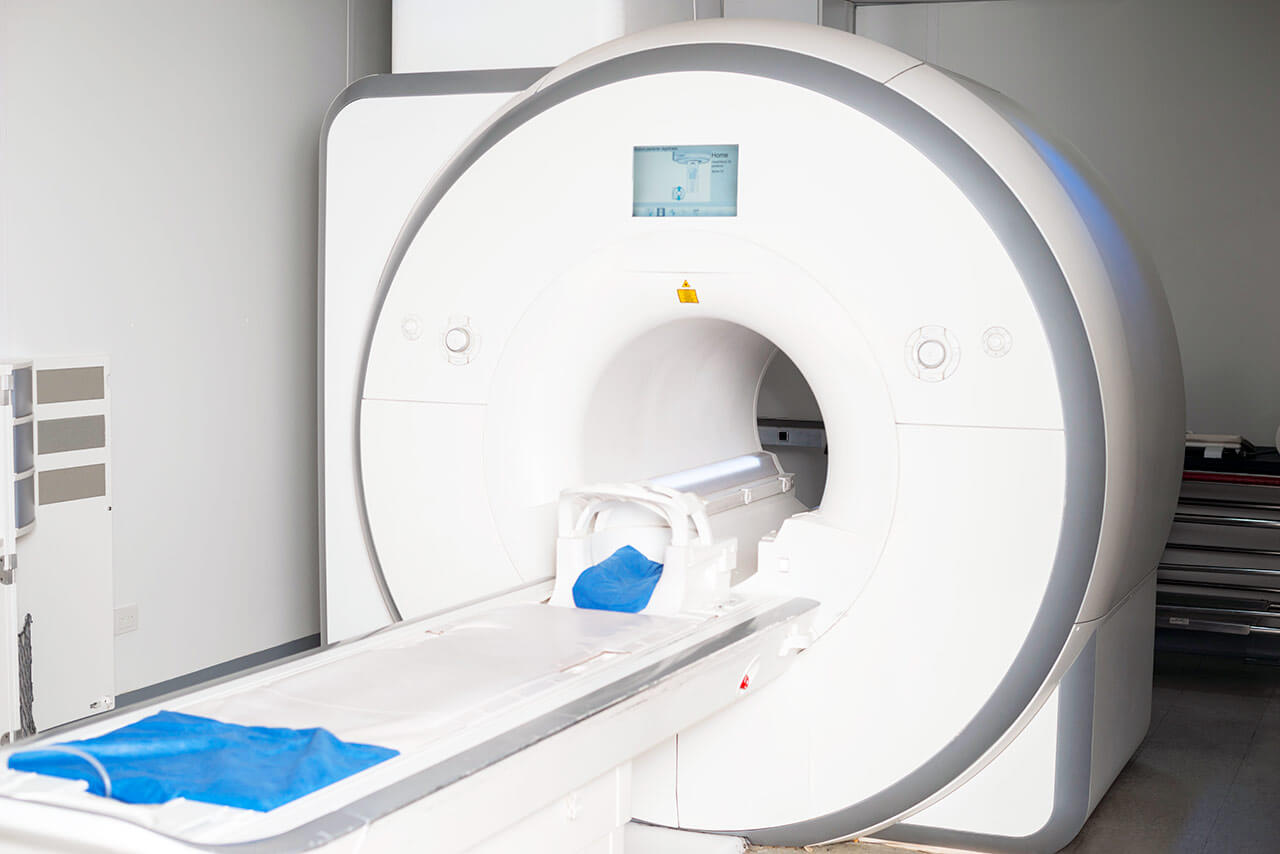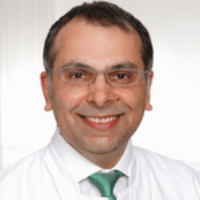
About the Department of General and Abdominal Surgery, Hepatobiliary Surgery, Endocrine Surgery and Hernia Surgery at St. Anna Hospital Herne
The Department of General and Abdominal Surgery, Hepatobiliary Surgery, Endocrine Surgery and Hernia Surgery at the St. Anna Hospital Herne offers the full range of medical services in the fields of its competence. The department performs surgery to treat stomach, esophageal, liver, gallbladder, pancreatic, bowel, peritoneal, spleen and thyroid diseases. In addition, the team of the department's surgeons successfully carries out treatment of various types of hernias: inguinal, umbilical, diaphragmatic, femoral and incisional. Of particular interest is the treatment of abdominal cancers – the department is certified by the German Cancer Society as the Bowel, Pancreatic and Esophageal Cancer Center. Whenever possible, preference is given to minimally invasive surgical techniques. The department's doctors make sure that each patient receives the most effective treatment that meets modern standards of European medicine. The department is headed by Dr. med. Nurettin Albayrak.
An important place in the department's clinical practice is given to the surgical treatment of intestinal diseases. The specialists of the medical facility perform surgery for inflammatory bowel disease (Crohn's disease and ulcerative colitis), intestinal obstruction, intestinal bleeding, diverticular disease, and colon polyps. The department also successfully performs bowel cancer treatment. As in other types of oncology, the chances of full recovery are significantly increased when pathology is detected at the early stage. When performing the operation, the surgeon removes the tumor and the area of the bowel affected by cancer, and then sutures the walls of the organ. The adjacent lymph nodes are also removed. After surgery, the patient often requires additional conservative therapy: chemotherapy and/or radiation therapy. The essence of the treatment of advanced stage of bowel cancer is to slow down the progression of the pathology, relieve pain and improve the patient's quality of life.
The department admits many patients with stomach diseases. The most common pathologies include gastric ulcers, polyps, and stomach cancer. As a rule, drug therapy and diet therapy are sufficient for the treatment of gastric ulcers, and the surgery is performed only in case of complications of the pathology – perforation or bleeding. The interventions to treat gastric ulcers are performed using laparoscopic techniques. In case of gastric polyps, gastroscopy is usually performed (endoscopic removal of benign neoplasms through the esophagus). The surgical intervention is indicated only when large polyps are detected. The main treatment for gastric cancer is surgical resection of a malignant tumor, and quite often partial or total stomach removal (subtotal or total gastrectomy). The optimal type of surgical intervention is determined depending on the type of tumor, its location, size, presence or absence of metastases and other clinical data.
The focus of the department's hepatobiliary surgeons is on patients with diseases of the liver (cysts, benign tumors and liver cancer) and gallbladder (cholelithiasis, inflammatory gallbladder lesions, benign and malignant neoplasms). Surgical interventions for the treatment of the above mentioned pathologies are performed with the use of minimally invasive techniques, without abdominal opening. Thus, surgical risks are reduced to almost zero, and recovery from the intervention is very fast.
In the field of endocrine surgery, special attention is paid to the treatment of thyroid diseases: diffuse enlargement of the thyroid gland, nodules and thyroid cancer. In the case of goiter, both medical and surgical treatment, or a combination of both, is possible. Should thyroid cancer be confirmed, the main treatment will be surgery to remove the affected organ. In this case, minimally traumatic endoscopic surgical techniques are most often used. The surgery for differentiated thyroid cancer is mostly followed by radioiodine therapy, which allows for the destruction of residual malignant cells. After the surgical treatment of undifferentiated types of thyroid cancer, radiation therapy is indicated to patients; in rare cases, chemotherapy is also provided.
The department's therapeutic offer is complemented by hernia surgery. The department's specialization in this medical field includes surgical repair of inguinal, umbilical, diaphragmatic, femoral and incisional hernias. As a rule, hernia surgery is performed with the use of minimally invasive surgical techniques. In some cases, plastic surgery is also required. Prior to the operation, the attending physician develops the optimal treatment regimen and tells the patient in detail about the stages of the upcoming surgical procedure.
The department's range of medical services includes:
- General and abdominal surgery
- Surgical treatment of bowel diseases
- Inflammatory bowel disease (Crohn's disease and ulcerative colitis)
- Bowel obstruction
- Intestinal bleeding
- Diverticular disease
- Bowel polyps
- Bowel cancer
- Surgical treatment of esophageal diseases
- Esophageal diverticulum
- Gastroesophageal reflux disease
- Benign esophageal tumors
- Esophageal cancer
- Surgical treatment of stomach diseases
- Gastric ulcer
- Gastric polyps
- Gastric cancer
- Surgical treatment of pancreatic diseases
- Acute and chronic pancreatitis
- Pancreas divisum
- Pancreatic cancer
- Surgical treatment of peritoneal diseases
- Peritonitis
- Peritoneal carcinomatosis
- Surgical treatment of spleen diseases
- Ruptured spleen
- Spleen infarction
- Surgical treatment of bowel diseases
- Hepatobiliary surgery
- Surgical treatment of liver diseases
- Liver cysts
- Benign liver tumors
- Liver cancer
- Surgical treatment of gallbladder diseases
- Cholelithiasis
- Inflammatory gallbladder lesions
- Benign gallbladder tumors
- Gallbladder cancer
- Surgical treatment of liver diseases
- Endocrine surgery
- Surgical treatment of thyroid diseases
- Goiter
- Thyroid cancer
- Surgical treatment of thyroid diseases
- Surgical treatment of hernias
- Inguinal hernia
- Umbilical hernia
- Diaphragmatic hernia
- Femoral hernia
- Incisional hernia
- Other surgical options
Photo of the doctor: (c) St. Anna Hospital Herne
